The Great Honey Debate: Raw Honey vs Pure Honey - Let's Settle This Sticky Feud!
Uncover the truth about honey! Raw or pure? We settle the sticky feud and reveal the buzz-worthy benefits of each!
Honey enthusiasts, brace yourselves! We're about to embark on an epic journey into the sweet, gooey world of honey and settle the age-old debate: raw honey versus pure honey.
It's a feud that has left tongues wagging, taste buds tingling, and honey lovers buzzing with curiosity. In this article, we'll dive deep into the hive to uncover the truth about these two tantalizing varieties of liquid gold. So, grab your honey dipper and get ready to dig in!
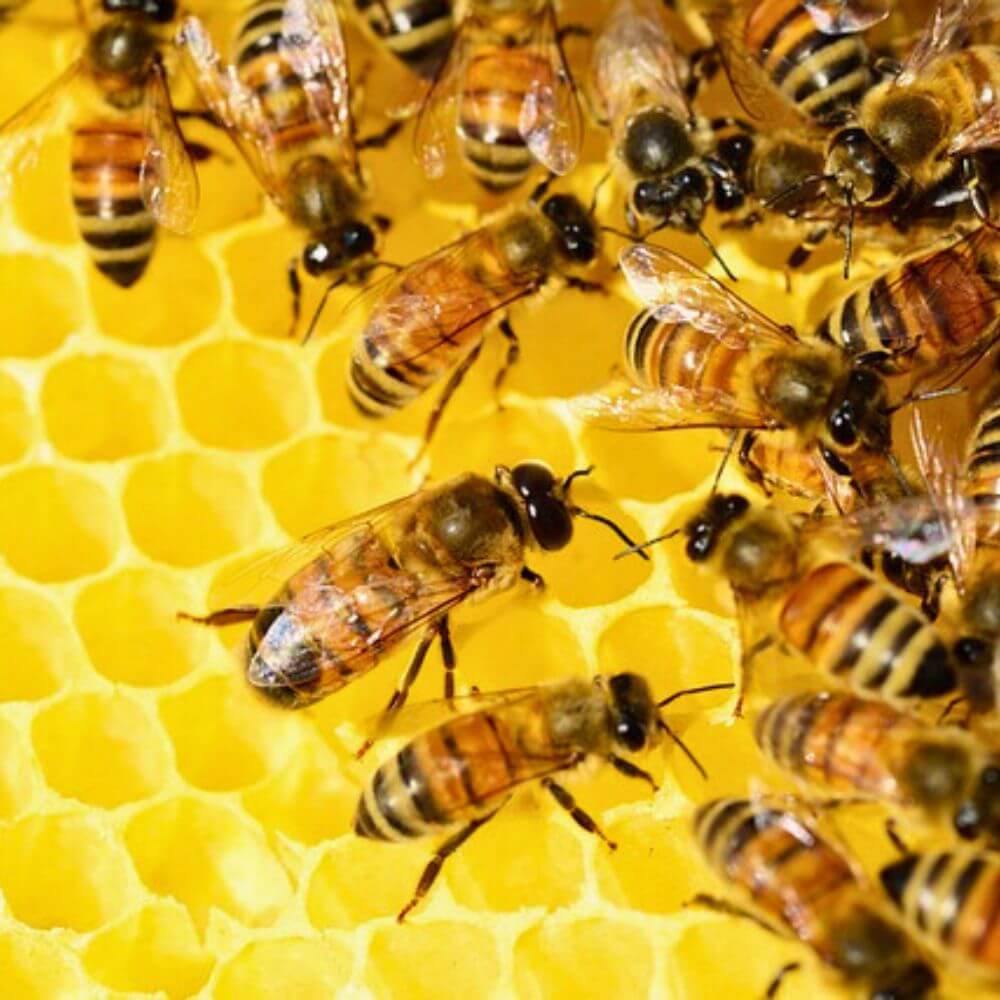
Defining Raw Honey and Pure Honey
Before we delve into the differences between raw honey and pure honey, let's first take a look at what these terms mean.
Raw honey is unprocessed, unpasteurized, and unfiltered honey, which means it retains all the natural enzymes, antioxidants, vitamins, and minerals that are usually lost during heating and filtering. Raw honey is also known as "straight from the hive" honey because it is honey in its purest form.
Pure honey is filtered to remove impurities such as wax, pollen, and bee parts, but it can still be heated to some extent. Pure honey is also known as "commercial" or "regular" honey because it is the type of honey that is most commonly found on supermarket shelves.
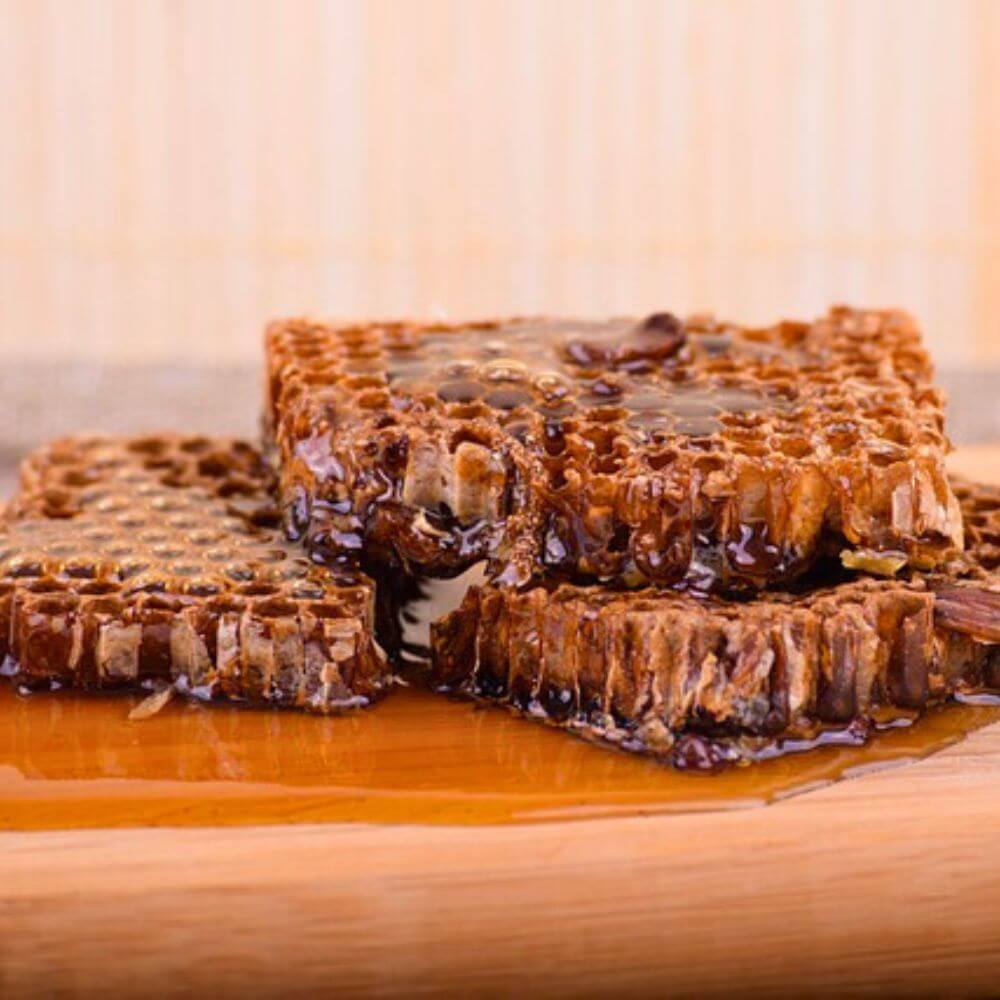
Raw Honey: Nature's Golden Elixir
Raw honey, the rebel of the honey world, is a force to be reckoned with. It's unfiltered, unheated, and unapologetically pure. Made straight from the honeycomb, raw honey retains all its natural goodness and boasts an array of unique characteristics that make it a favorite among honey enthusiasts.
What Makes Raw Honey Special?
Raw honey comes straight from the beehive, where bees collect nectar from flowers and store it in a honeycomb. The nectar mixes with enzymes in the bees' saliva and gets deposited into the honeycomb cells, where it's left to mature and thicken over time.
Once the honey is ready, it is extracted from the honeycomb and packaged for consumption.
Raw honeys are like a party in your mouth, bursting with flavors that dance on your taste buds. It's a vibrant concoction of floral notes, thanks to the nectar collected from various blossoms.
From the delicate sweetness of orange blossom honey to the robust and earthy tones of buckwheat honey, each variety brings a unique taste experience.
But it's not just about taste. Raw and unfiltered honey is a nutritional powerhouse. It's loaded with beneficial enzymes, antioxidants, vitamins, and minerals that can give your health a sweet boost.
Plus, raw honey is known for containing traces of pollen, which some claim can help alleviate seasonal allergies. Talk about a natural remedy that's as sweet as can be!
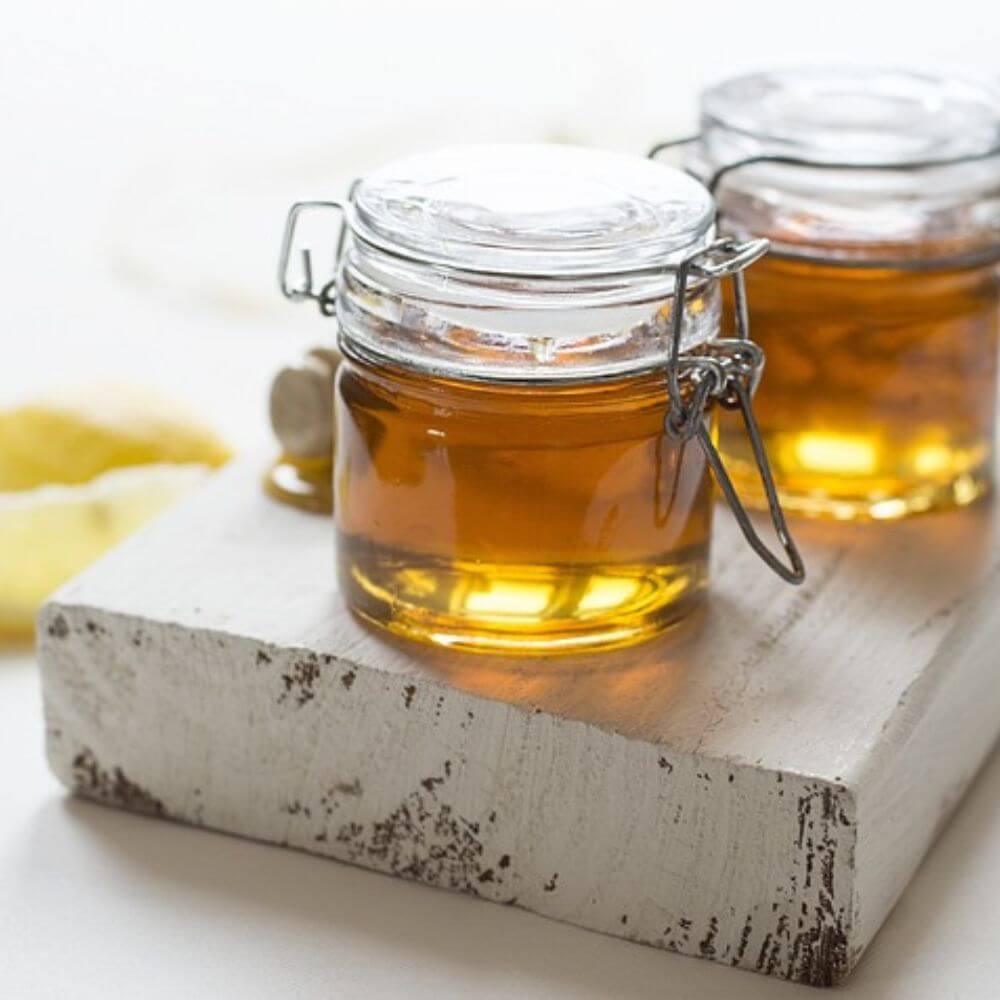
Pure Honey: Filtered, Refined, and Still Sweet
Now, let's turn our attention to pure honey, the polished sibling of raw honey. Pure honey undergoes a filtration and heating process to remove impurities and create a smooth, golden elixir. This refined version of honey has its own loyal following and for good reason.
The Secrets Behind Pure Honey
Pure honey is like the James Bond of honey. Smooth, suave, and sophisticated, it's been meticulously filtered to remove any debris or unwanted particles.
This process gives pure honey a pristine appearance and a longer shelf life. So, if you're a honey hoarder, pure honey might just be your golden ticket!
While some may argue that the heating process used in pure honey production diminishes its nutritional value, it still retains many of the natural enzymes and antioxidants that make honey a healthy choice.
So, fret not, honey lovers, your sweet tooth can still find solace in a jar of pure honey.
Pure honey goes through a filtration process after the honeycomb is harvested to remove impurities such as wax, pollen, and bee parts.
After the honey is filtered, it may be heated to some extent and pasteurized to prevent crystallization and easier to mix into recipes.
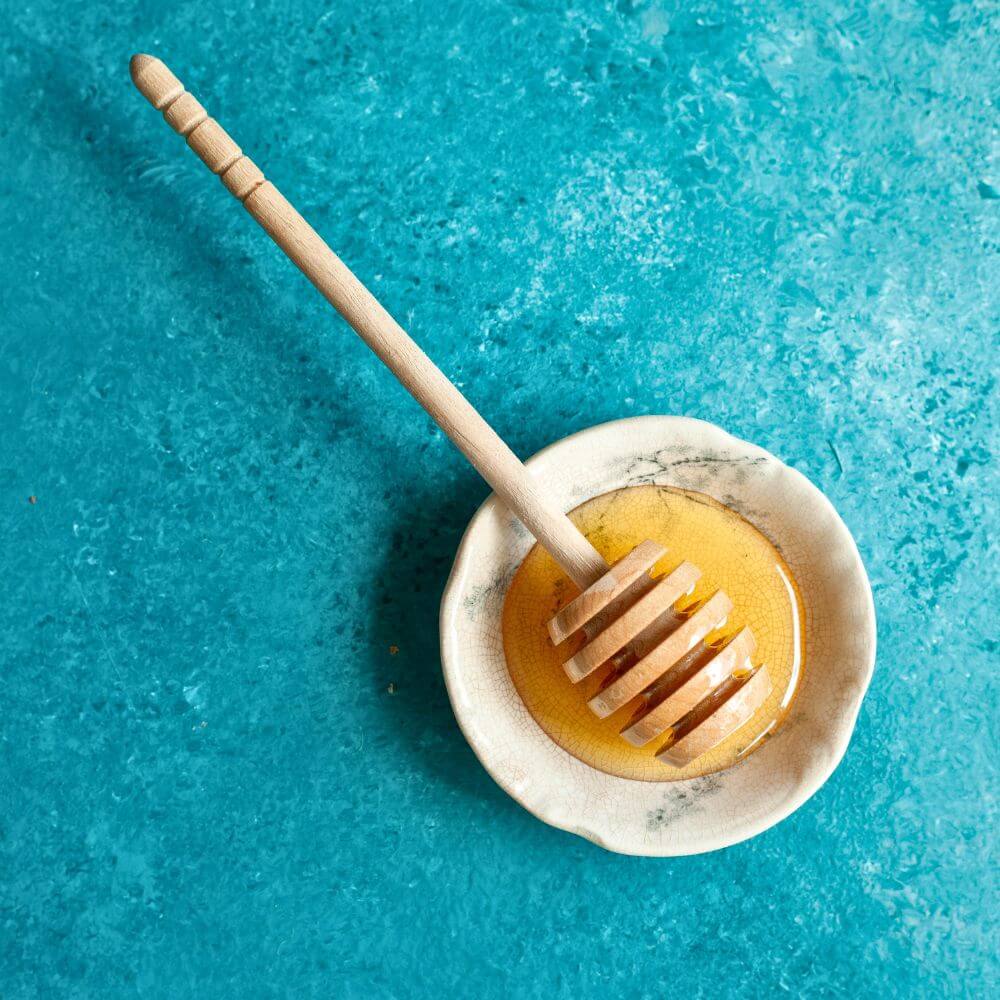
The Key Differences
Now that we've acquainted ourselves with raw and pure honey individually, it's time to uncover the key differences that set them apart. Think of it as a honey showdown where we'll compare their production processes, nutritional profiles, and overall honeylicious qualities.
Raw honey, being untouched by human hands, is a direct product of the bees' hard work. It's extracted from the honeycomb and then strained to remove larger particles, but it maintains its natural essence.
On the other hand, pure honey undergoes filtration and heating, which helps improve its clarity and texture.
In terms of nutrition, raw honey takes the crown. It's bursting with enzymes, bee pollen, antioxidants, vitamins, and minerals that can provide a wholesome boost to your health.
Pure honey, while not as nutrient-dense, still offers plenty of benefits to sweeten the deal.
From natural honey produced by diligent honey bees to the various forms of raw and regular honey available, each type offers a unique taste and texture.
Comparison of Nutritional Content, Taste, Texture, and Aroma:
Now that we understand the differences between raw honey and pure honey and how they are produced, let's compare the nutritional content, taste, texture, and aroma of both types.
Nutritional Content:
Raw unfiltered honey contains more antioxidants, enzymes, vitamins, and minerals than pure honey, making it a more nutritious option.
Because raw honey is unprocessed, it retains all of the beneficial nutrients that are typically lost during processing.
Taste:
Raw honey has a richer and more complex flavor than pure honey. This is because raw honey undergoes a natural fermentation and aging process that gives it a unique and delicious taste.
On the other hand, pure honey has a milder and more consistent flavor that is less complex than raw honey.
Texture:
Raw honey has a thicker texture than pure honey. This is because raw honey has not been filtered or heated, so it retains all of the natural enzymes and particles, including bee pollen, that give it its texture.
Pure honey, on the other hand, has a smoother texture due to the filtration process.
Aroma:
Raw honey has a stronger and more distinct aroma than pure honey. This is due to the natural fermentation and aging process that gives raw honey its unique aroma.
Pure honey, on the other hand, has a lighter aroma that is less distinct than raw honey.
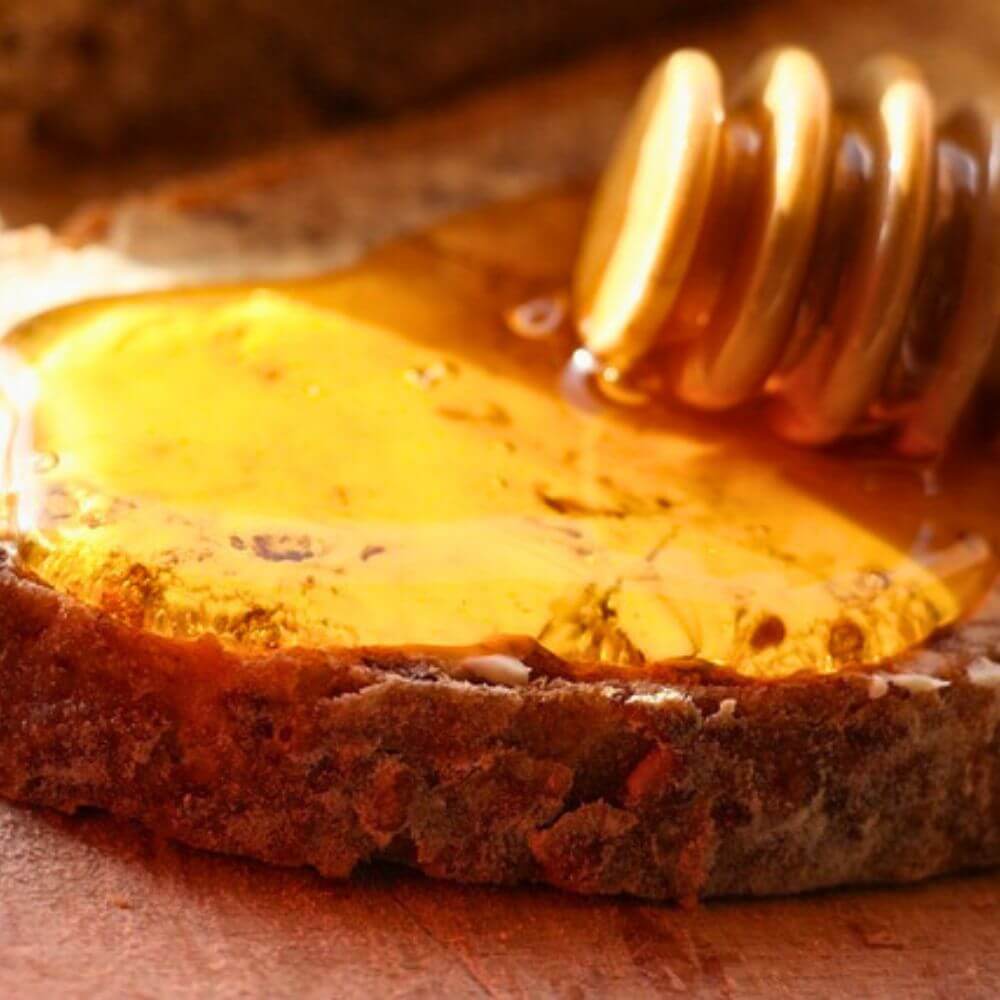
Health Benefits
Raw honey has been used for centuries for its health benefits. It has anti-inflammatory and antibacterial properties, allergy relief, and wound healing abilities. Raw honey also contains antioxidants that protect against cellular damage and reduce the risk of chronic diseases.
Pure honey, although not as nutritious as raw honey, still has some health benefits. It has antimicrobial properties that can help fight off bacteria and viruses. Pure honey may also have a soothing effect on sore throats and coughs.
Potential Risks
While honey is generally safe to consume, there are some potential risks associated with raw honey. Raw honey may contain harmful bacteria and spores that can cause botulism in babies and people with weakened immune systems.
It is important to note that this risk is very low with eating raw honey, but it's still important to take precautions when consuming raw honey.
It is also worth noting that all types of honey are high in sugar, which can be a concern for those with diabetes or other health conditions.
Additionally, some people may be allergic to honey, so it's important to consider this before consuming large quantities of honey.
What About Certified Organic Honey?
When delving into the realm of honey, it's crucial to keep in mind that the distinction between raw and pure honey extends beyond their characteristics alone. Both raw and pure honey has the potential to fall into two distinct categories: organic and non-organic.
This means that the honey you encounter, whether it be in its raw or pure form, can either be sourced from organic beekeeping practices, ensuring a harmonious relationship with nature or originate from non-organic sources where conventional methods may be employed.
Organic honey is produced from bees that have been raised in an organic environment free from pesticides and other harmful chemicals. This means that the nectar collected by the bees and used to make the honey is also free from these harmful chemicals.
Organic honey is not only better for the environment, but it may also be healthier for us. Because the honey is produced from bees that have not been exposed to harmful chemicals, it may contain higher levels of beneficial nutrients and antioxidants.
However, it's important to note that organic honey is not necessarily healthier than raw or pure honey. The nutritional content of honey depends on many factors, including the type of flowers the bees collect nectar from and how the honey is processed.
When purchasing organic honey, it's important to look for certifications such as USDA organic and non-GMO project verified to ensure that the honey meets strict organic standards. You may want to consider buying local honey to support your local beekeepers.
While organic honey may be slightly more expensive than regular honey, it's a great option for those who are concerned about the environment and want to support sustainable beekeeping practices.
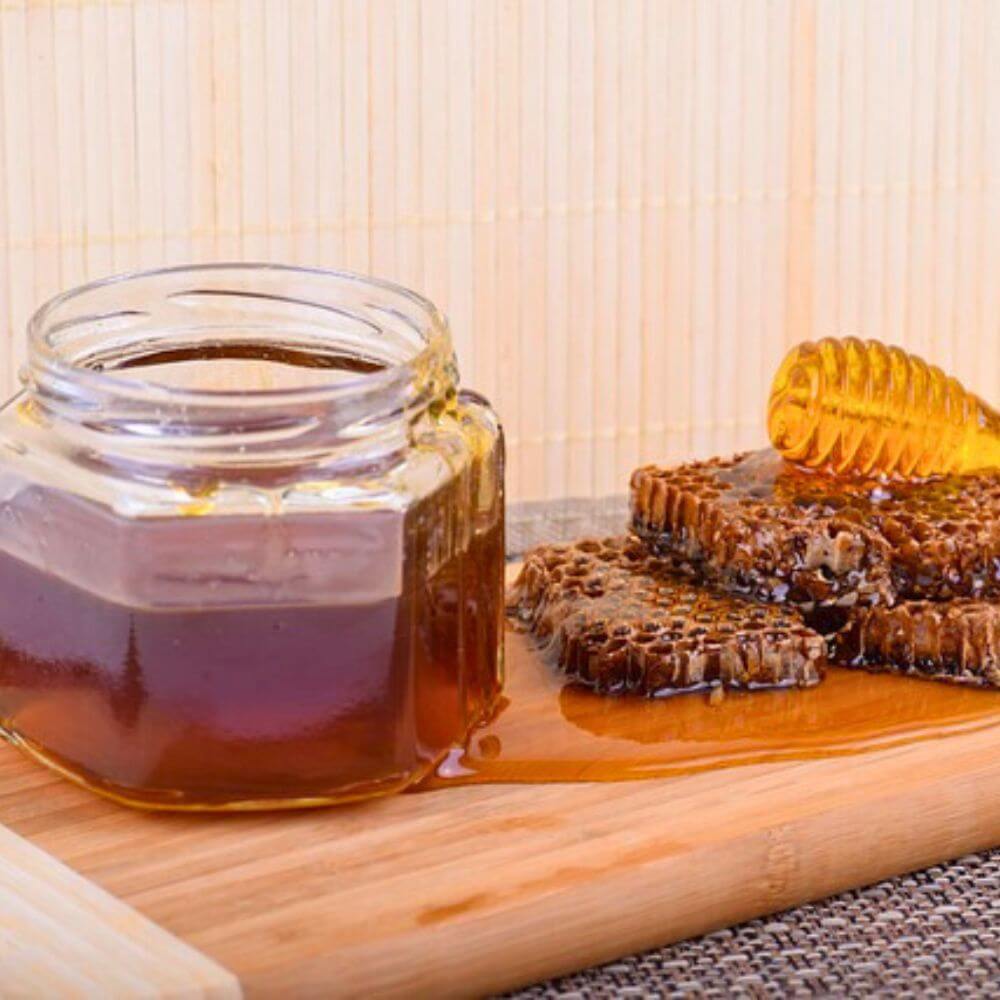
Raw Honey vs Pure Honey: Choosing the Winner
So, dear reader, it's up to you to don the honey judge's hat and decide which variety reigns supreme in your heart and pantry. Are you drawn to the raw, nutritious, unfiltered essence of honey, with all its natural goodness and unique flavors?
Or does the refined elegance of pure honey tickle your taste buds in just the right way?
Ultimately, the choice lies in your personal preference and how you plan to use honey in your culinary adventures. Raw honey's robust flavors can add depth to marinades, and dressings, and even drizzled over a warm slice of toast.
Pure honey, with its smooth texture, is a versatile companion for sweetening beverages, baking delicious treats, or simply enjoying a spoonful of sweetness.
Whichever type you choose, make sure to buy it from a reputable source and store it properly to maintain its quality and freshness, and ensure that it hasn't been adulterated with the addition of high fructose corn syrup.
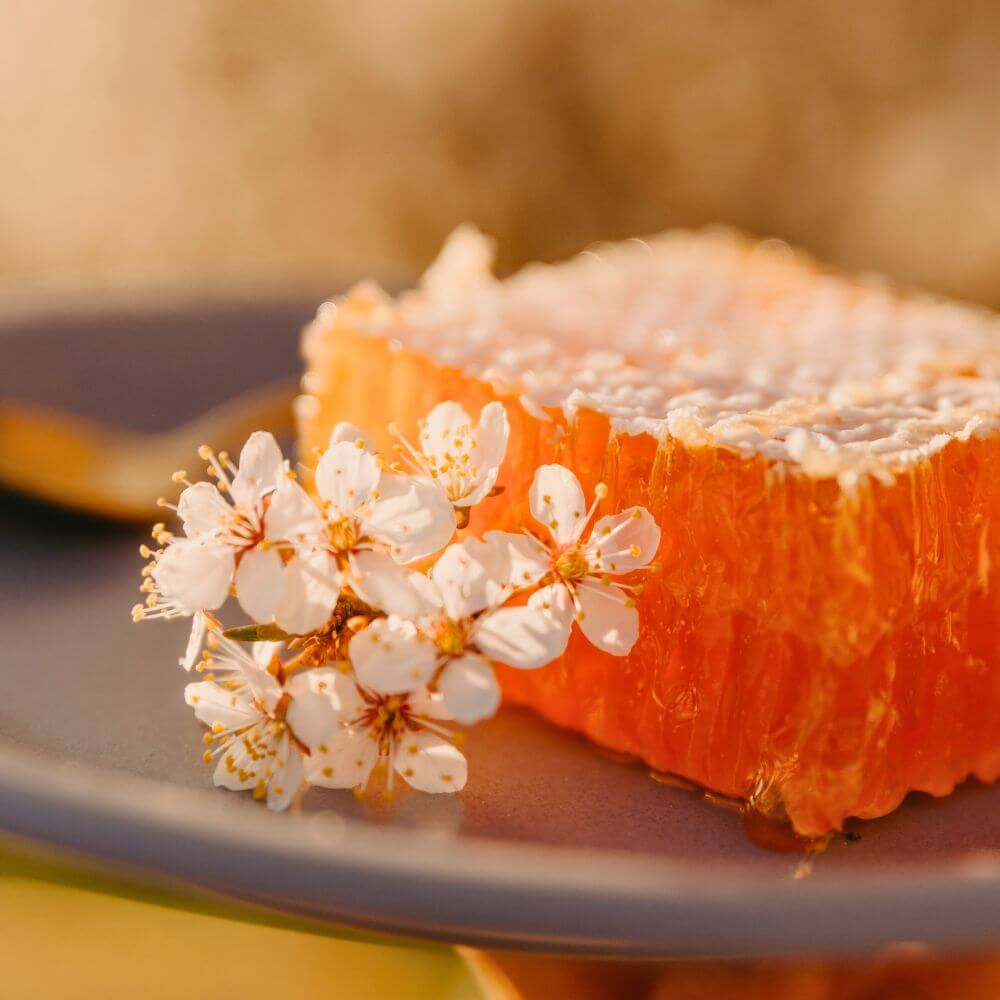
Conclusion
As we wrap up this honey-filled journey, let's take a moment to appreciate the richness and diversity that honey brings to our lives.
Whether you find solace in the raw, unadulterated beauty of honey or the refined elegance of its pure counterpart, one thing remains certain: Honey is a gift from nature that continues to sweeten our lives in more ways than one.
So, the next time you're at the local farmers market, reach for that jar of golden goodness and savor the flavors, the history, and the endless possibilities that honey offers.
Remember, the great honey debate may never truly be settled, but the joy and sweetness it brings will continue to unite honey enthusiasts around the world.
In the end, let's embrace the sticky feud, knowing that no matter which side of the honey jar you choose, you're indulging in nature's sweetest gift.
As we bid adieu, keep buzzing, honey lovers, and may your journey with this liquid gold be as delightful as the bees that craft it.
You Might Also Enjoy Reading This!
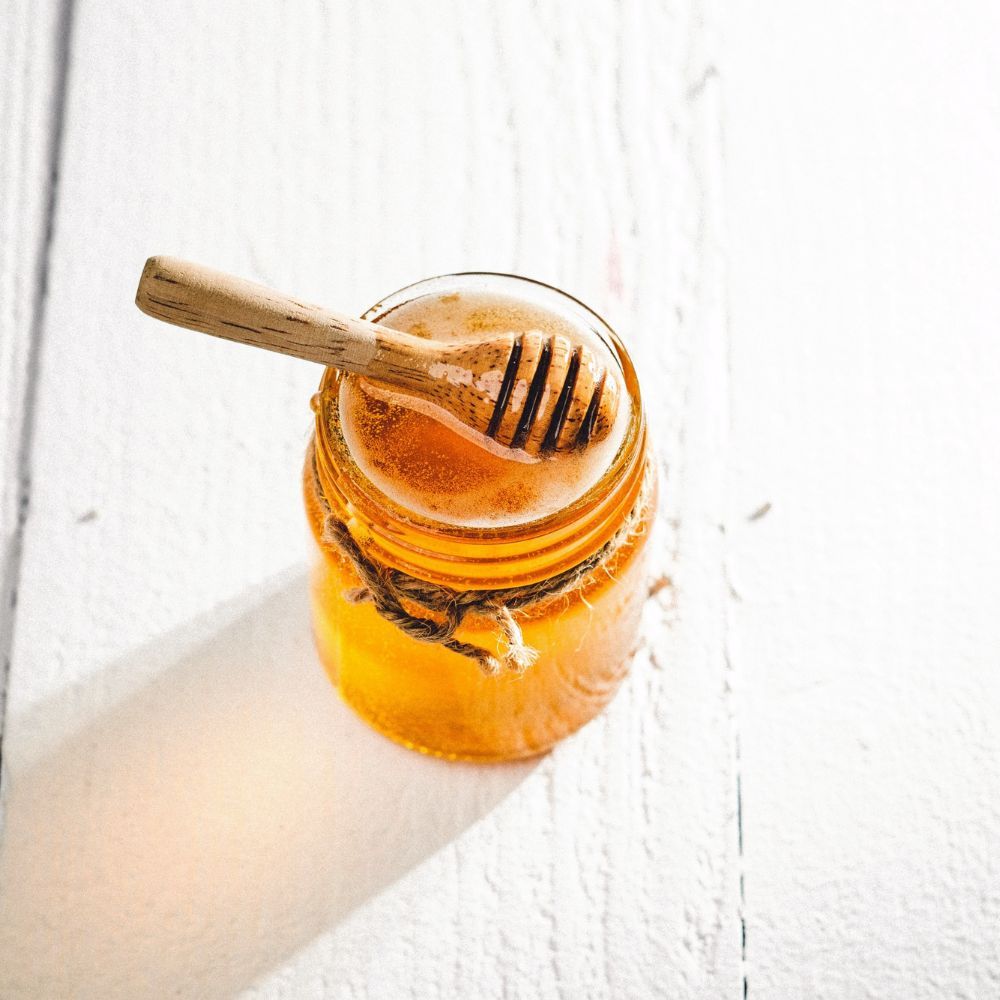

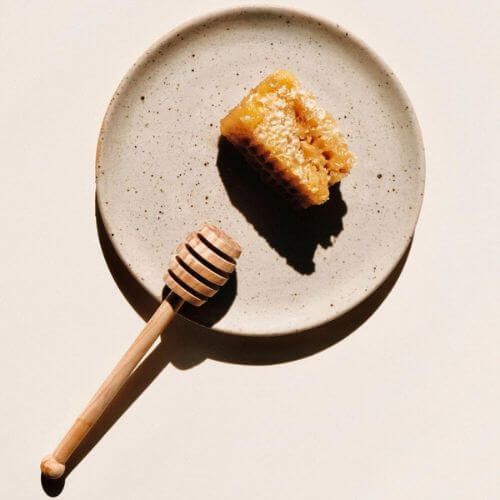
Disclaimer
Each of these products has been very carefully reviewed and selected by us at WellnessWishlist. All opinions in this article are our own, and we're proud to share them with you, however, all content is meant only to be informative and should not be taken as medical advice, nor used to diagnose, treat, and or prevent any health conditions. As Amazon associates, we may collect compensation from the affiliate links on this page, through qualifying purchases (that's how we stay in business). We truly hope you enjoy finding the next addition to your WellnessWishlist!


